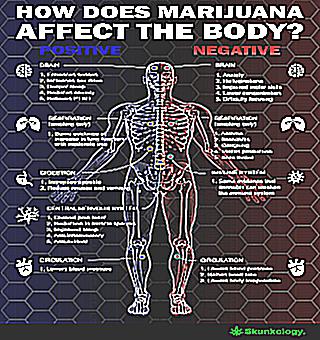Home >
Erectile Dysfunction >
The effect of marijuana on potency
The effect of marijuana on potency

Marijuana is considered to be a psychoactive substance of plant origin. The drug is made from hemp, the components of which have a negative effect on the psychological and functional state of a person. Taking cannabinoids inevitably causes a decrease in sexual potency and a disorder of the reproductive organs.
Signs of cannabinoid intoxication
After a small amount of a psychotropic hemp-based drug enters the body, toxic substances are quickly transferred from the blood to the internal organs and tissues rich in lipids (brain, lungs, genitals). The high rate of toxic effects causes great harm to cannabinoids for all body systems. It is possible to establish the fact of taking small and medium doses of illegal drugs by such external signs as:
- inhibited behavior, unnatural postures
- slurred speech, unreasonable laughter and sudden mood swings
- sweeping and awkward movements, loss of coordination, motor disinhibition
The use of large amounts of marijuana is evidenced by:
- inhibition of movements
- difficulty in thinking and speaking
- a detached gaze, which is fixed at one point
- a relaxed face that does not express any emotions
- delusional judgments and inadequate reactions to current events
- complete or partial immobility
Often, serious poisoning is accompanied by psychotic manifestations in the form of delirium, unreasonable panic, auditory and visual hallucinations, as well as obsessive states. The peak of intoxication depends on the amount of drug taken and, as a rule, lasts from 2 to 5 hours. After entering the blood and internal tissues, psychotropic cannabinoids go through an oxidation stage and are excreted from the body. Marijuana is a persistent drug addiction. It is not uncommon for people who start using cannabis to switch to heavier opium-type drugs over time.
Physiological Effects of Taking Marijuana
The human body reacts to the penetration of a toxic substance as follows:
- increased appetite
- dry mouth
- redness of the conjunctiva of the eyeballs
Brain cell damage
The negative effect of the drug increases with systematic use, the greatest harm is done to the brain. The fact is that toxic substances are carried along with nutrients and oxygen. Blood stasis occurs in the capillaries responsible for supplying the brain with essential trace elements. Cerebral bleeding is disturbed, the liquid part of the blood is soaked into the brain tissue, severe edema and destructive processes in the nerve cells occur. The tissues of the nervous system located in the cerebellum, cortex and subcortical nodes are deprived of the necessary nutrition, the cells shrivel and die. A person's intelligence level decreases and memory deteriorates, habitual life values are gradually lost, libido level decreases and a man no longer experiences sexual attraction to the opposite sex.
Damage to the reproductive system
Taking marijuana affects the work of the hormonal system, slowing down the secretion of the male sex hormone. A drop in serum testosterone levels causes a drop in a man's sexual performance. The systematic use of the drug provokes a decrease in the rate of spermatogenesis, a decrease in the mobility and viability of spermatozoa, which are deprived of the opportunity to penetrate the protective membrane of the egg. Thus, drug addiction is the reason for the onset of infertility. If a person who smokes marijuana manages to fertilize an egg, the fetus often has a series of severe structural abnormalities and life-threatening pathologies. Children born to drug addicts suffer from:
- attention and cognitive deficits
- underdeveloped social interactions
- hyperactivity and irritability
- visual and nervous system impairments
< li>stunted growth - congenital decline in fertility
Psychological consequences of drug use
Cannabis products have a persistent intoxicating effect. Marijuana intoxication leads to increased sensitivity to sounds and other stimuli, panic attacks, and decreased self-control. A person suffers from paranoid ideas, clouded consciousness, a constant sense of impending danger and disorientation. A pronounced delusional syndrome develops, which is accompanied by fear of persecution and anxiety, loss of moral guidelines and depersonalization of the personality.



























